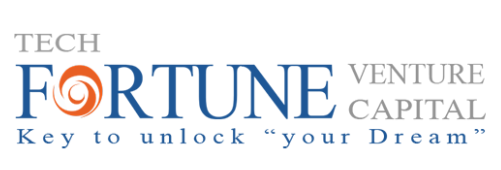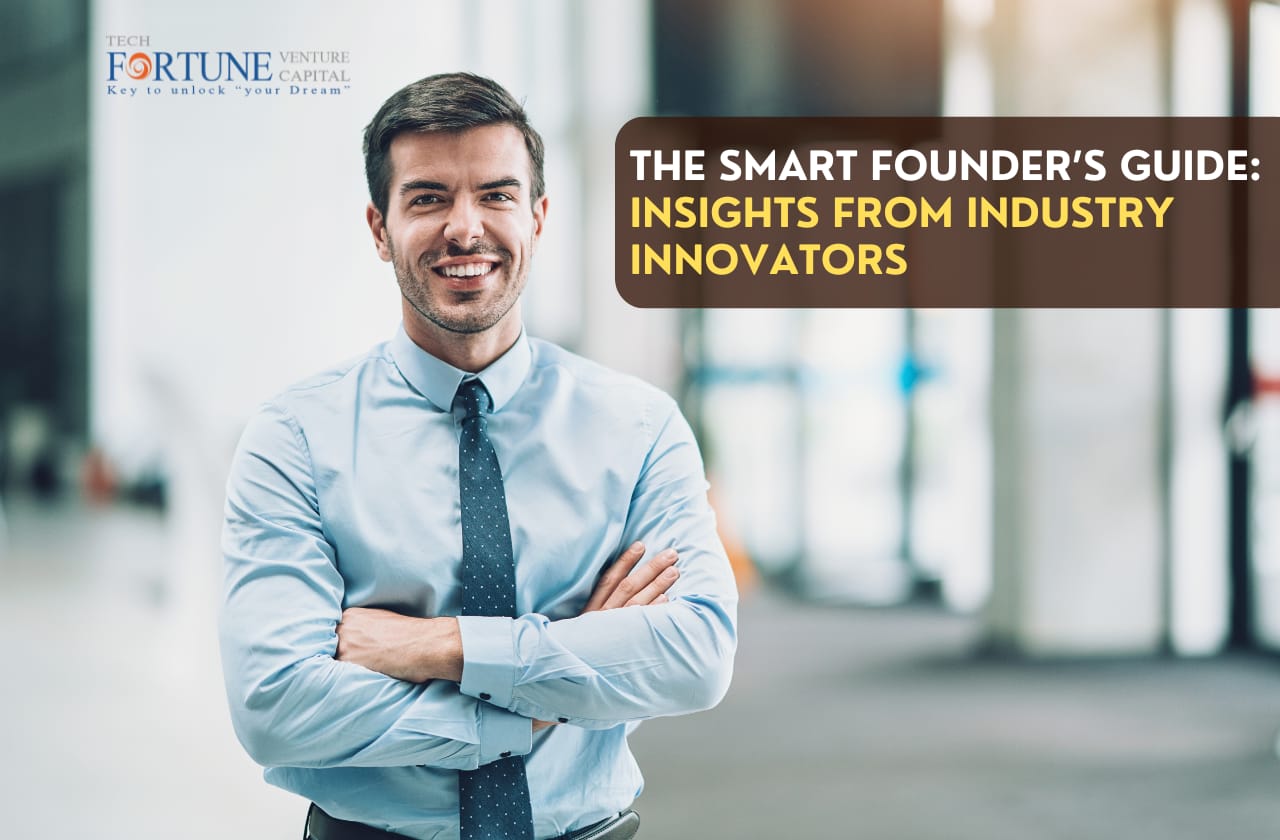“The Smart Founder’s Guide: Insights from Industry Innovators”
Entrepreneurship in 2025 unfolds amid rapid technological change, growing emphasis on sustainability and social impact, and constantly shifting consumer expectations. The traditional playbook no longer fits this dynamic landscape. To thrive, entrepreneurs must look to the insights of today’s leading thinkers, innovators, and business strategists. Below is a collection of their most impactful advice—translated into practical, forward-looking actions you can implement today.
1. Embrace AI as a foundational tool, not just a supplement
One of the dominant themes across thought leadership today is that artificial intelligence is not optional—it’s foundational to future success.
“The best startups generally come from somebody needing to scratch an itch.”
— Michael Arrington, Founder of TechCrunch
- Bill Aulet (MIT) argues that AI will fundamentally change how ventures are built: “The combination of AI and entrepreneurship will fundamentally and forever change the process of building new ventures and products.” MIT Executive Education
- In academic research, the role of generative AI (GenAI) in shaping entrepreneurship has become a major topic, underscoring its influence on business models, ideation, and automation. arXiv
- A recent study suggests that SMEs adopting AI report up to a 30% reduction in operational costs and revenue boosts via efficiency gains. arXiv
What to do as an entrepreneur:
- Start with small pilots (e.g. automating repetitive tasks, generating content outlines, predictive analysis).
- Use AI not to replace creativity, but to augment it (e.g. combining domain insight + prompt design).
- Establish guardrails and ethics/privacy practices from day one.
2. Lead with purpose, people, and planet
“Purpose is not the sole pursuit of profits but the animating force for achieving them.”
— Larry Fink, CEO of BlackRock
Beyond financial returns, thought leaders now emphasize the importance of mission, values, and impact.
- Trend analyses show that in 2025, “Purpose, People, Planet” is rising as a framework for credible thought leadership. Audiences expect businesses to address social, environmental, and equity issues. iResearch Services
- Entrepreneurs are increasingly asked: What is your impact? It’s no longer enough to have a “cool tech startup” — you need to stand for something meaningful.
What to do as an entrepreneur:
- Be explicit about your mission and embed it into your business model and culture.
- Metrics matter: track your ESG/impact KPIs (diversity, carbon footprint, community engagement).
- Speak publicly (via blogs, LinkedIn, podcasts) about challenges and learnings—not just successes.
3. Cultivate agility and a “reinvention mindset”
“It is not the strongest of the species that survive, nor the most intelligent, but the one most responsive to change.”
— Charles Darwin
In a world of continuous change, the ability to pivot, adapt, and reinvent is vital.
- Nadya Zhexembayeva (reinvention scholar) argues that businesses today must treat reinvention not as a one-time project, but as a continuous, systematized capability. Wikipedia
- Thought leadership around entrepreneurial leadership recommends less rigid top-down goals, and more experimentation alongside teams. Forbes
What to do as an entrepreneur:
- Use agile practices—frequent feedback loops, MVPs (minimum viable products), hypothesis testing.
- Build small “skunkworks” or internal experiments to explore new ideas without jeopardizing core operations.
- Normalize change inside your culture (train people, manage fear, reward adaptability).
4. Focus on niche expertise, community, and voice
“The riches are in the niches.”
— Pat Flynn, Entrepreneur and Podcaster
In a crowded content landscape, those who specialize and build communities often rise above the noise.
- Thought leadership trends in 2025 emphasize “less is more”: go deep in fewer areas rather than shallow across many. iResearch Services
- Many leading thinkers advocate turning from content broadcasting to community building—private groups, cohort-based engagement, live conversations. mediagraphicspr.com+1
- The lines between personal branding and company brand are blurring: CEOs and founders are increasingly visible voices. mediagraphicspr.com
What to do as an entrepreneur:
- Pick 1–2 topics where you can be uniquely credible (not everything).
- Create content (blogs, newsletters, podcasts) tied to that niche, offering original insight or frameworks.
- Engage consistently: host webinars, answer questions in forums, run small peer communities.
5. Use data-driven storytelling
“Data is what you need to do analytics. Information is what you need to do business.”
— John Owen, Data Strategist
Data gives your ideas credibility; storytelling gives them emotional resonance.
- In modern thought leadership, combining data + narrative is essential to persuasion. iResearch Services+1
- Audiences are more skeptical than ever. Signal your thought leadership with evidence, case studies, or original research.
What to do as an entrepreneur:
- Run small surveys or experiments in your field to generate original findings.
- Whenever you make a claim, back it with numbers, visuals or case studies.
- Use storytelling techniques (problem → struggle → insight → call to action) to make your work more memorable.
6. Collaborate across industries, build ecosystem thinking
“The next big breakthrough will come from the collaboration of unlikely partners.”
— Sangeet Paul Choudary, Platform Strategy Expert
The next big breakthroughs often happen at the intersections of industries and through networks.
- Sangeet Paul Choudary’s work on platform thinking highlights how business value is shifting toward ecosystems, network effects, and partnership models. Wikipedia
- Thought leadership in 2025 emphasizes not working in silos but partnering across domains (e.g., health + AI, energy + blockchain). iResearch Services+1
What to do as an entrepreneur:
- Seek strategic partnerships—even with non-obvious players (academia, nonprofits, adjacent industries).
- Participate in interdisciplinary forums, workshops, and consortia.
- Offer to co-author with domain experts or guests on complementary platforms/casts.
7. Build your network of mentors, advisors, and peers
“What gets measured gets managed.”
— Peter Drucker, Management Consultant
No founder is an island; even the best ideas need input, challenge, and exposure.
- Successful founders often emphasize how mentors and networks opened doors or helped them avoid critical mistakes.
- Podcasts like Masters of Scale continue to highlight stories where mentorship played a pivotal role. Wikipedia
What to do as an entrepreneur:
- Identify 2–3 mentors (industry, functional, personal growth) and nurture those relationships.
- Join peer groups or founder communities (in your city, domain, or accelerator).
- Be generous: help peers when you can; reciprocity strengthens ties over time.
8. Measure, learn, iterate — and be transparent
“Transparency breeds trust, and trust is the foundation of great leadership.”
— Howard Schultz, Former CEO of Starbucks
What gets measured gets managed; what’s transparent builds trust.
- Many thought leaders counsel regular reflection, course correction, and public vulnerability about failures as part of authentic leadership. Forbes+1
- Transparency (where appropriate) builds stakeholder trust—employees, investors, customers alike.
What to do as an entrepreneur:
- Track a dashboard of key metrics (financial, customer, engagement, team health).
- Hold regular “review and reflect” sessions with your team.
- In public communications, share lessons learned—not just wins.
9. Be customer obsessed, not feature obsessed
“Your most unhappy customers are your greatest source of learning.”
— Bill Gates, Co-founder of Microsoft
In a fast-moving world, the strongest product-market fit comes from deep empathy with users.
- Thought leaders increasingly emphasize jobs-to-be-done thinking over feature lists.
- Startups that succeed longest are those that continually listen to real user pain points and iterate accordingly.
What to do as an entrepreneur:
- Embed feedback loops with customers (surveys, interviews, usage analytics).
- Prioritize solving a “delightful pain” (i.e. something your user perennially experiences).
- Avoid feature bloat: focus on the smallest set of features that delight your core users.
10. Maintain resilience, self-care, and guard against founder fatigue
“It’s not the load that breaks you down, it’s the way you carry it.”
— Lou Holtz
Sustaining high performance over years demands care—not burnout.
- The entrepreneurial journey is emotionally intense. Prominent leaders speak about stress, mental resilience, and boundaries.
- Entrepreneurs are expected to be “on” from day one; managing energy is as important as managing tasks.
What to do as an entrepreneur:
- Schedule downtime, rest, creative breaks, and boundaries.
- Surround yourself with peers, coaches, or therapists for emotional support.
- Accept that failure is part of the journey; build mindsets of curiosity, not shame, around setbacks.
How Techfortune Venture Capital (TFVC) Helps Entrepreneurs
At Techfortune Venture Capital (TFVC), we go beyond traditional funding — we build long-term partnerships with founders to help them scale, sustain, and lead with purpose. Our goal is to empower visionary entrepreneurs with the right capital, connections, and strategic expertise to transform ideas into thriving businesses.
Here’s how we help:
- Smart Capital, Not Just Cash
TFVC invests in early to growth-stage startups that combine innovation with strong fundamentals. We focus on founders who use technology to solve real-world problems and create scalable impact. - Strategic Mentorship & Industry Access
Our team of seasoned investors, founders, and industry veterans provide hands-on guidance — from refining business models and go-to-market strategies to navigating fundraising and global expansion. - Data-Driven Growth Acceleration
We help portfolio companies leverage data intelligence, AI integration, and market analytics to make informed decisions and unlock new opportunities for growth. - Network & Ecosystem Support
Entrepreneurs gain access to TFVC’s extensive network of corporates, domain experts, and innovation partners, enabling strategic collaborations, new clients, and expansion into global markets. - Long-Term Vision Alignment
We prioritize founders with a clear mission and long-term vision. TFVC acts as a growth catalyst — helping align financial success with sustainability, innovation, and positive societal impact.
In short:
Techfortune Venture Capital doesn’t just fund businesses — we fortify them with intelligence, partnerships, and purpose-driven strategies to thrive in a rapidly evolving global landscape.
Wrap Up:
In 2025, entrepreneurship isn’t just about innovation or disruption—it’s about leadership, resilience, impact, and community. The advice above—rooted in insight from today’s foremost thinkers—offers guiding lights: lean into AI, anchor on purpose, stay agile, build credible voices, and never stop learning.
If you’re building or scaling a venture and want to deepen your strategic thinking, or explore investment opportunities, Techfortune Venture Capital is here to partner with visionary entrepreneurs. Let us help you turn your big ideas into sustainable, high-growth businesses.
FAQ:
Entrepreneurs today face a blend of technological, financial, and cultural challenges. Rapid AI disruption, evolving consumer expectations, and rising costs of innovation mean founders must constantly balance agility with focus. Additionally, investors are prioritizing sustainable growth and long-term value creation over quick exits. The challenge is not just launching — it’s adapting continuously while staying true to your mission.
The key to differentiation in 2025 lies in authentic storytelling and data-backed credibility. Customers no longer buy only products — they buy into values, trust, and experience. Startups that clearly communicate their “why,” show measurable impact, and build engaged communities around their niche are the ones that rise above the noise. Thought leadership, transparency, and real-world problem-solving drive visibility and loyalty.
The fast pace of entrepreneurship often leads to mental and emotional fatigue. Founders should adopt practices that sustain both productivity and well-being — such as delegating effectively, maintaining realistic milestones, and embracing reflection time. Building a strong inner circle of mentors, advisors, and supportive peers helps entrepreneurs stay grounded through uncertainty and setbacks. Remember, sustainable leadership starts with self-care.
Unlike typical investors focused solely on returns, Techfortune Venture Capital (TFVC) believes in empowered partnerships. TFVC combines funding with strategic mentorship, data intelligence, and long-term growth planning. The firm works closely with founders to unlock innovation, enhance operational efficiency, and prepare businesses for global expansion. It’s not just about investment — it’s about nurturing visionary leaders for enduring success.

